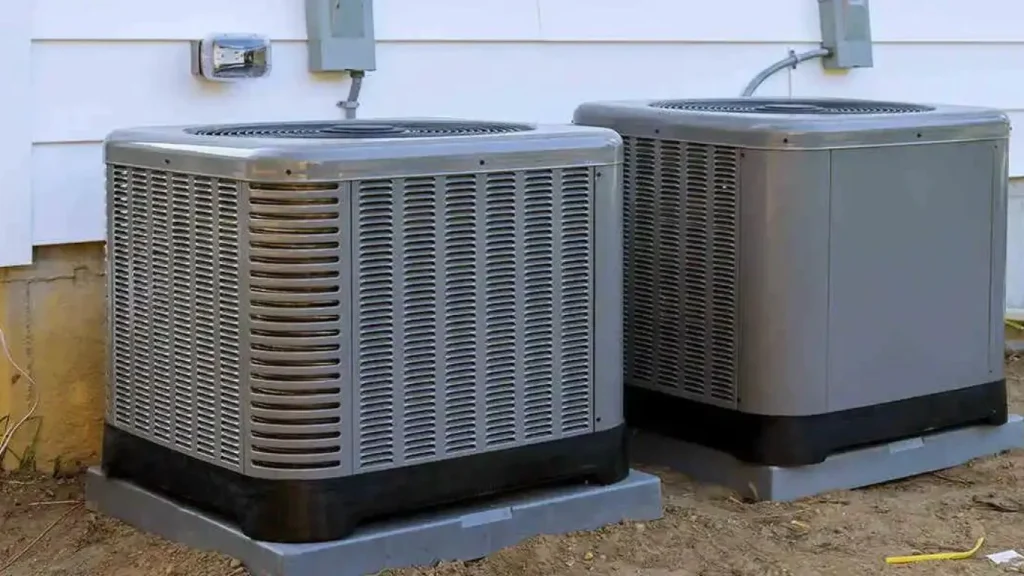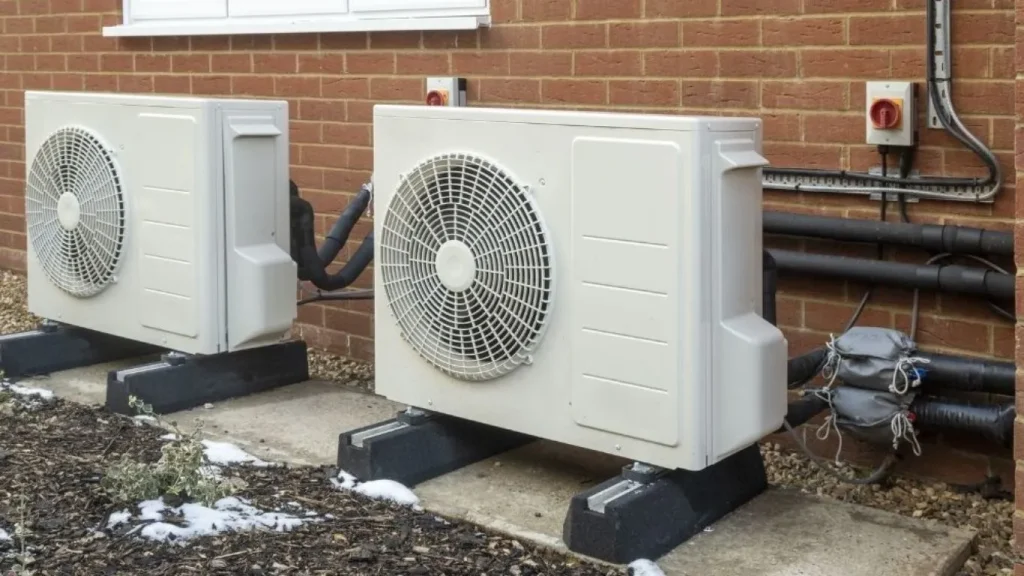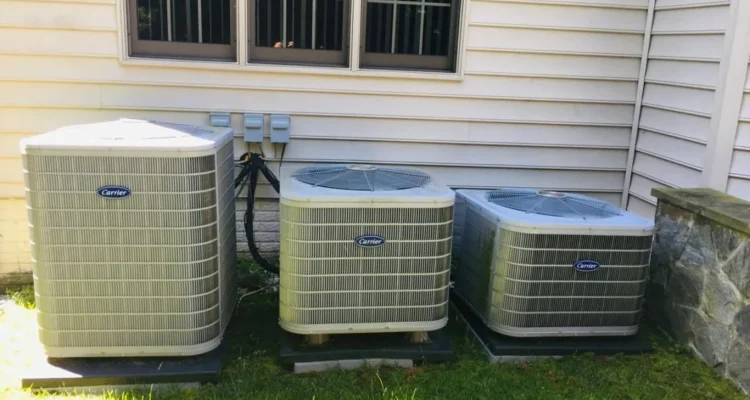If you’re wondering, “Why would my heat pump blow cold air?”—you’re not alone! This is a common concern for many homeowners, especially during the winter months. While it may seem like something’s wrong, cold air coming from your heat pump isn’t always a sign of a serious issue. There are several reasons why this might happen, and understanding how heat pumps work can help you troubleshoot the problem effectively.

Understanding How Heat Pumps Work
Heat Pump Basics
A heat pump is a versatile system designed to provide both heating and cooling for your home. Unlike traditional furnaces, which generate heat by burning fuel, heat pumps work by transferring heat from one place to another. In heating mode, a heat pump extracts heat from the outdoor air and brings it inside to warm your home.
Heating and Cooling Modes
Heat pumps can reverse their operation depending on the season. In the summer, they pull heat from the inside of your home and release it outdoors to cool the space. In the winter, the process flips, pulling heat from the outside air—even when it’s cold—and transferring it indoors.
Key Components of a Heat Pump
To understand why your heat pump might blow cold air, it’s helpful to know the key components involved:
- Compressor: This pressurizes refrigerant, allowing it to absorb and release heat.
- Evaporator Coil: The coil where refrigerant absorbs heat from the outdoor air.
- Condenser Coil: The coil where the absorbed heat is released into your home.
- Reversing Valve: Allows the heat pump to switch between heating and cooling modes.
Common Reasons for Heat Pump Blowing Cold Air
There are several reasons your heat pump might blow cold air instead of warm. Some are normal, while others might require troubleshooting.
Heat Pump Is in Defrost Mode
One of the most common causes of cold air from your heat pump during the winter is defrost mode. When outdoor temperatures drop, frost can build up on the outdoor unit’s coils. To prevent ice buildup, the heat pump will occasionally switch to cooling mode to melt the frost. During this time, cold air may come through your vents temporarily, but the system will return to heating mode shortly.
Incorrect Thermostat Settings
If your heat pump is blowing cold air, check the thermostat first. Ensure it’s set to “heat” and not “cool.” It’s also a good idea to confirm the temperature setting is higher than the current room temperature. Sometimes, thermostat errors are simply user settings gone wrong.
Low Refrigerant Levels
Heat pumps rely on refrigerant to transfer heat. If your system is low on refrigerant, it won’t be able to extract enough heat from the outside air to warm your home. As a result, the air coming out of your vents may feel cooler than expected. Low refrigerant usually means there’s a leak that needs to be fixed by a professional.
Reversing Valve Malfunction
The reversing valve allows your heat pump to switch between heating and cooling modes. If this valve malfunctions, your heat pump could get stuck in cooling mode, even when you want heat. This is another issue that requires professional repair.
Airflow Issues
Restricted airflow, whether due to dirty filters, blocked vents, or obstructions around the outdoor unit, can lead to poor heating performance. If air can’t flow freely through the system, your heat pump may struggle to distribute warm air.
Seasonal Factors and Heat Pump Performance
Winter Weather and Cold Air
During particularly cold weather, it’s normal for a heat pump to have a harder time maintaining warm indoor temperatures. Heat pumps are designed to work efficiently down to a certain outdoor temperature, but in extreme cold, their heating capacity may drop.
How Outdoor Temperatures Affect Performance
When temperatures dip below freezing, your heat pump will need to work harder to extract heat from the outdoor air. This can result in cooler air being blown into your home, especially if the heat pump is undersized for your heating needs.
Normal Temperature Fluctuations in Heat Pump Operation
A well-functioning heat pump will sometimes blow cooler air for short periods, especially when switching between heating and cooling modes. Short bursts of cooler air are normal and should not last long.
Troubleshooting Tips for Cold Air from Heat Pump
Check the Thermostat
Double-check that your thermostat is set correctly. Make sure it’s on “heat” and not “cool” mode, and that the set temperature is above the room temperature.
Inspect Air Filters and Vents
Clogged air filters and blocked vents can restrict airflow, leading to cold air blowing from your heat pump. Clean or replace filters regularly and ensure nothing is obstructing the vents.
Examine the Outdoor Unit
Inspect the outdoor unit for ice buildup or debris around the unit that could restrict airflow. If there is ice on the coils, your heat pump may be stuck in defrost mode for longer than normal.
Call a Professional for Help
If you’ve gone through the basic troubleshooting steps and your heat pump is still blowing cold air, it’s time to call an HVAC professional. They can inspect the system, check refrigerant levels, and repair any malfunctioning parts.
Preventative Maintenance for Heat Pumps
Regularly Clean or Replace Filters
Dirty air filters are one of the most common causes of heating issues. Check your filters monthly and replace them when they become dirty to maintain optimal airflow.
Keep Outdoor Units Clear of Debris
Ensure the outdoor unit has at least two feet of clearance on all sides to allow for proper airflow. Trim back any plants or bushes that may be blocking the unit.
Schedule Routine HVAC Inspections
An annual inspection by a qualified technician can help identify and address potential issues before they cause your heat pump to blow cold air.
FAQs
What is the average lifespan of a heat pump?
Most heat pumps last between 10 to 15 years, depending on how well they’re maintained.
How often should I check my heat pump’s filters?
Check filters monthly and replace them every 1 to 3 months, depending on the type and usage.
Can a heat pump work efficiently in freezing temperatures?
Yes, heat pumps are designed to work in cold weather, but they may need backup heating in extreme cold.
How do I know if my heat pump needs more refrigerant?
Signs of low refrigerant include reduced heating, ice buildup on the outdoor unit, and longer run times.
Is it normal for a heat pump to run constantly in cold weather?
Yes, during very cold weather, it’s normal for the heat pump to run continuously to maintain indoor warmth.

Conclusion: Ensuring Efficient Heat Pump Performance
Maintaining your heat pump is crucial to ensuring efficient heating during the colder months. Understanding how your heat pump works and knowing the common reasons for cold air can help you troubleshoot and resolve problems quickly. By following these tips and scheduling regular maintenance, you can keep your home warm and comfortable all winter long.


Congratulation!